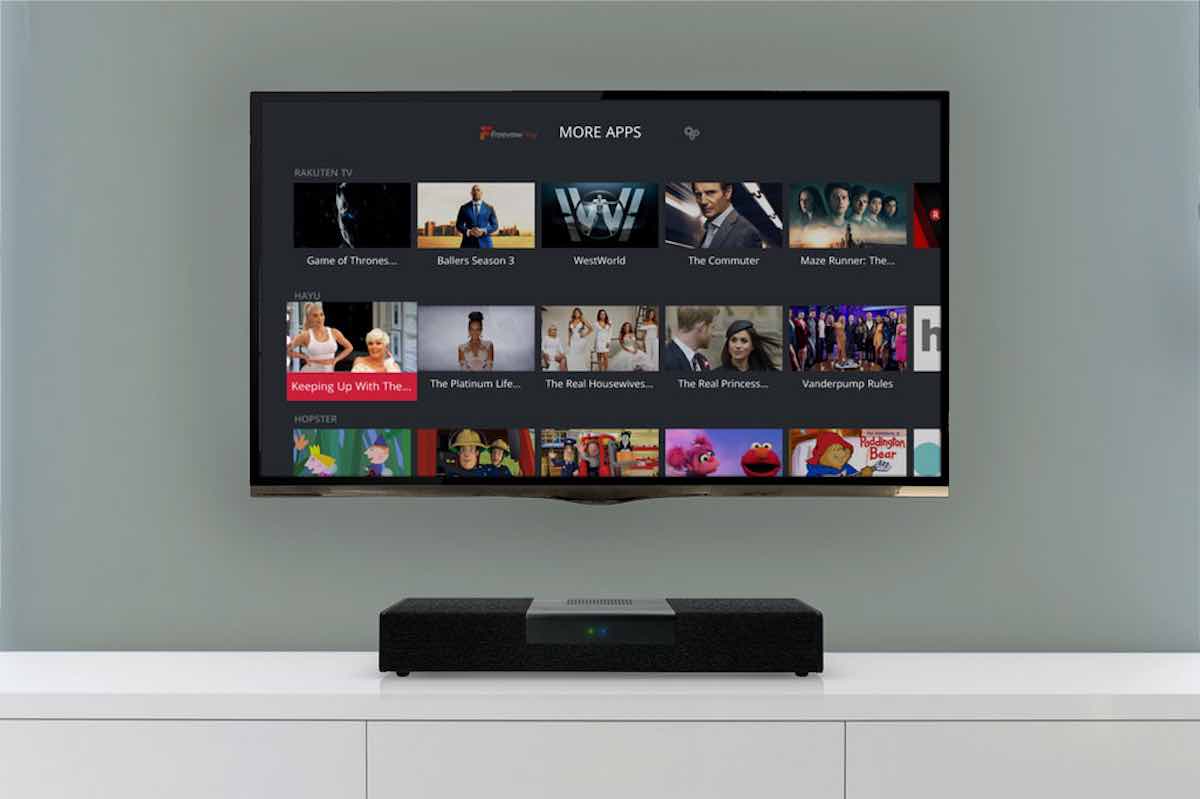 Officially launched this week, Netgem’s new Freeview Play compatible NetBox HD streaming box and Soundbox HD mark a shift in approach for the firm which has traditionally been content with powering TV services for ISPs and telcos looking to add value to their packages.
Officially launched this week, Netgem’s new Freeview Play compatible NetBox HD streaming box and Soundbox HD mark a shift in approach for the firm which has traditionally been content with powering TV services for ISPs and telcos looking to add value to their packages.
Here in the UK the firm is the force behind EE TV and globally has tie-ups with major household names, the 5 million+ clients of which are largely unaware of its involvement.
But the new products place the firm’s brand front and centre and require Netgem to assume responsibility for frontline support, packaging design and retail marketing – tasks it’s never had to worry about previously.
With a “growing” B2B business, why enter the often messier world of direct to consumer products and services?
“We see in the UK market in particular – we think it’s probably the same in Germany and maybe in France but yet to be proved, and Spain and Italy, so the large Western Europe markets – that there is still a fairly hefty direct to consumer market for entertainment services and devices, particularly with the rise of OTT content both from the local broadcasters like the BBC and the large International brands like Amazon,” Netgem boss Sylvain Thevenot told SEENIT when we visited the firm’s London offices last month.
“If you think about hybrid OTT devices, from the tiny stick to much more sophisticated devices with multi-tuners and PVR, excluding Sky, there’s actually an almost equal share of connected TV devices that are sold as part of bundles from operators as there are retail.”
“We thought: ‘We’re doing a good job with the operator customers, why don’t we also tap into this because we’ve never done it’.
“There are some interesting things happening there and we’re not even playing, unlike Roku, who we increasingly see as one of our competitors, who started there in consumer but are progressively selling more in the UK through their Now TV agreement and in other markets they are starting to sell their technology – but not yet successfully in other European markets.
“We thought ‘Why don’t we go there and, quite frankly, block the road to Roku and the other American companies as much as we can?’
“It has been fuelled also by the investment we’ve made in the UK market – we’ve made quite heavy investment which is good for the operator business but actually a lot of that investment can also be used for very nice consumer products – such as the work to obtain Freeview Play certification.”
Thevenot also suggested that well received consumer products could “help to accelerate” a move by telcos and other TV providers away from developing their own platforms towards partnering with technology companies such as Netgem to distribute their TV products.
Such a transition would mirror the way most mobile networks have largely stopped buying cheap smartphones from OEMs which they then brand and offer as part of low-cost tariffs and instead now offer a range of handsets from bigger brands such as Apple and Samsung which appeal to different market segments.
“Our view is, in the TV space, increasingly by having a finished product we will change the relationship with operators.
“We don’t think that will start with the very big ones because they have enough money and teams in place but we’ve had quite a few sign ups of smaller and mid-size ISPs who love the product and want to bundle it.”
While Thevenot is unable to reveal any names, he told SEENIT that discussions are now underway with several UK brands which are interested in bundling some form of TV service with their broadband packages.
One of the Soundbox HD’s big selling points is the inclusion of a year’s free Amazon Prime subscription, meaning buyers can watch big name series such as The Grand Tour and Man In The High Castle straight out of the box.
Thevenot confirmed that the offer is available to both new and existing Prime subscribers, with the second group being able to add the free 12 month period to the end of their current subscription term.

The NetBox and Soundbox are also initially only available from Amazon, so how did the tie-up with a firm that produces its own range of set top boxes come about?
“Essentially we were selected last year by Amazon to develop what’s called a porting kit.
“They obviously want to expand their reach and to implement Prime Video on as many devices as possible, including operator set top boxes. Most of the operators’ boxes are based on a Broadcom chipset and because we work very closely with Broadcom they selected us to implement that.”
And from a consumer angle he says “we believe it is important to bundle some element of premium content and we think Amazon Prime is great for that.”
Explaining the decision to enter the market with a combined set top box and soundbar, Thevenot says: “We thought that to enter the market we needed something a bit different because the set top box in direct to consumer is extremely aggressively priced.”
“The second reason is that TVs are getting worse and worse in terms of sound quality so people are buying soundbars – the category has tripled year on year – and we thought it was good to go where there is growth, but let’s do it differently.”
That philosophy seems to have paid off – the demo we received in Netgem’s offices produced a louder and richer sound than the average flatscreen is capable of and a growing pile of positive reviews in tech publications is likely to help push the message that this is a sensible all in one solution for anyone looking to address their TV speakers’ shortcomings.
The NetBox and Soundbox are only the start of Netgem’s new consumer range with additional products, including some with 4K support and others Thevenot gave us an early but confidential guide to, in a variety of form factors are expected to hit the shelves in the coming months.
And, while the firm is hopeful that its growing range will appeal to telecos, Thevenot insists the consumer offering is “a real business” in its own right and one the company has big hopes for.



